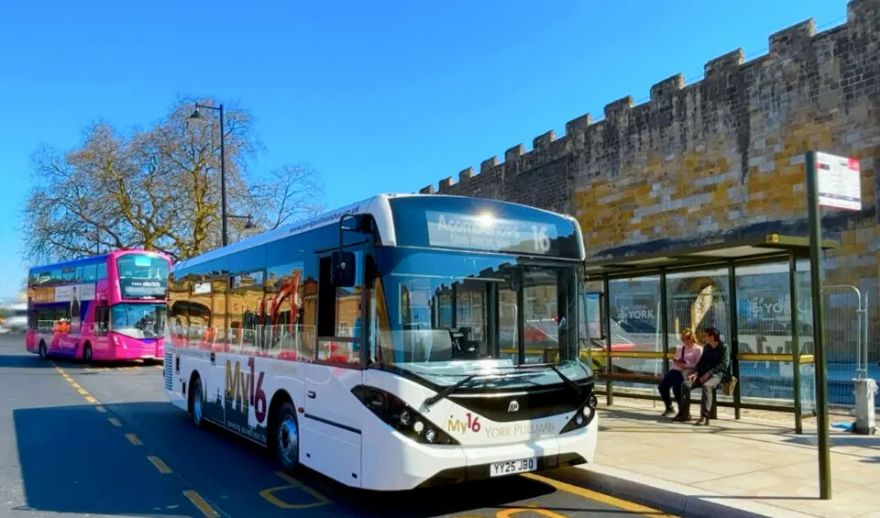 Enviro200 low-emission midibus. Photo: Alexander DennisAlexander Dennis
Enviro200 low-emission midibus. Photo: Alexander DennisAlexander Dennis, a subsidiary of
NFI Group Inc, a leader in bus mobility solutions, yesterday announced it is entering into a consultation on a new strategy for its UK manufacturing operations. The refocused strategy results from the completion of a detailed business review and is intended to adjust the business to changing market dynamics.
Under the consultation, Alexander Dennis will look at consolidating its UK bus body manufacturing operations into a single site in Scarborough. Its Scottish based manufacturing in Falkirk, which has already been reduced in recent years, would be discontinued and the site closed. Production lines at Larbert would be suspended upon the completion of current contracts. This proposed new structure will lower overall costs, deliver clearer responsibilities and increase efficiency by removing duplicate functions and activities.
The statutory consultation places up to 400 roles at Alexander Dennis at potential risk of redundancy. This represents approximately 22% of Alexander Dennis’ workforce and 4% of NFI’s global workforce. The company expects a follow-on impact on its domestic supply chain, where it has spent over £1 billion in the last five years with its 1,000 suppliers in all parts of the UK. For every job in bus manufacturing, there is a multiplier of three to four jobs in the wider supply chain and support services.
Alongside the new manufacturing strategy, Alexander Dennis is making changes to the structure and management of key customer support teams to ‘drive a clearer focus on quality and reliability, delivery to targets, and communications’.
Lowering operating costsPaul Davies, Alexander Dennis president and managing director, said: “We are proposing a new UK manufacturing strategy to underpin financial sustainability and lower operating costs in the face of changing and challenging market dynamics. Together with our parent NFI Group, we are extremely proud of our UK history and legacy dating back to 1895 and firmly believe in our people, products and business. We must take significant action to drive efficiency to allow our operating model to be competitive. It is extremely regrettable that as part of this, we must place jobs at potential risk of redundancy and propose to cease manufacturing operations at some of our facilities.
“While stakeholders have been sympathetic of the situation, the stark reality is that current UK policy does not allow for the incentivisation or reward of local content, job retention and creation, nor does it encourage any domestic economic benefit. We have warned of the competitive imbalance for some time and would like to see policy and legislative changes that incentivise the delivery of local benefit where taxpayer money is invested. We strongly believe funding that supports public transport should lead to investment in local jobs, domestic supply chains, technology creation and a recurrent tax base.”
He concluded: “It is our hope that the forthcoming industrial strategy will provide reassurance that there is value in manufacturing within the borders of the UK and we remain hopeful of policy and legislative changes that increase the UK’s focus on support for domestic manufacturing. Our new strategy would allow us to respond appropriately to increase local production if structural changes are made.”